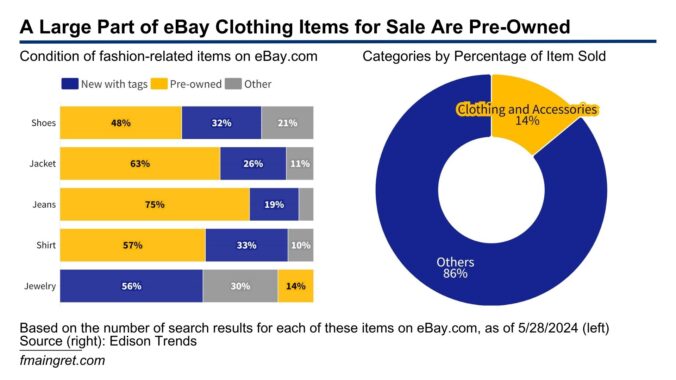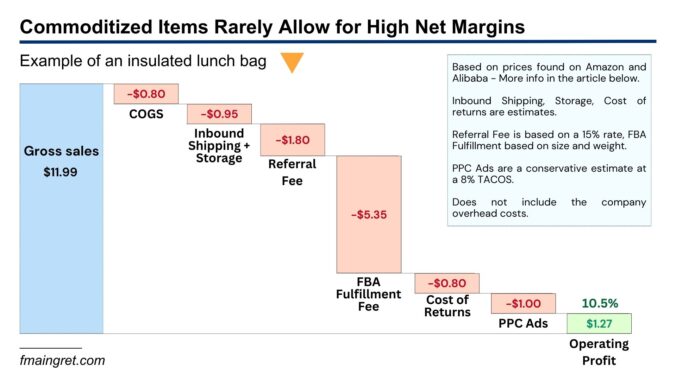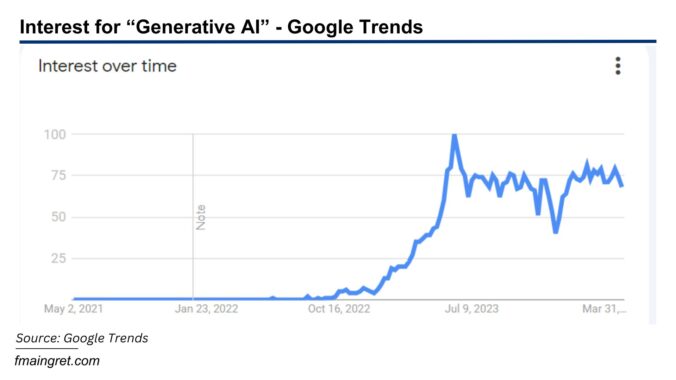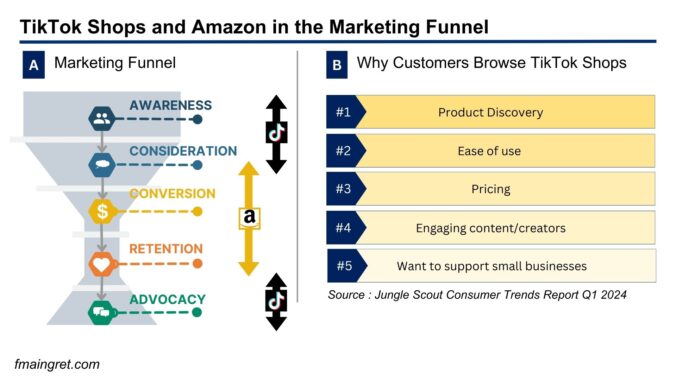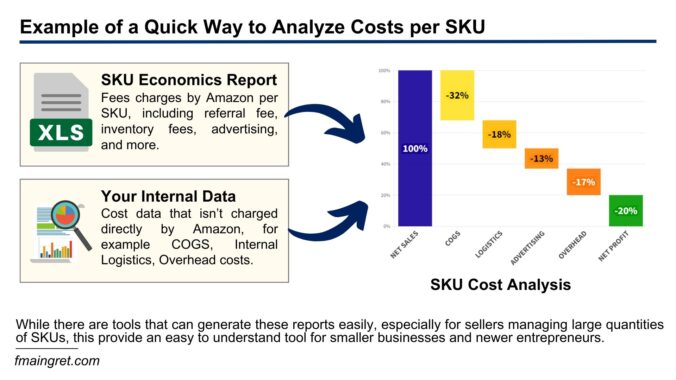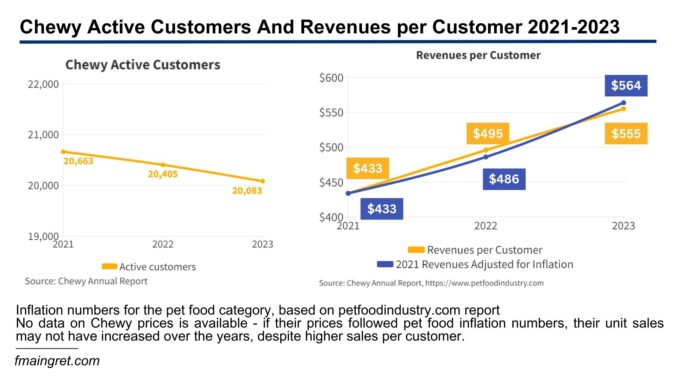Last week, I came across a great article by Spencer Soper in Bloomberg (link below, I recommend reading it) about how Amazon sold a returned used diaper, and hurt an American small business relying on the FBA program. I found that this story is the perfect example of the shit (no pun intended) Amazon sellers have to deal with every day. The process of the incident is complex, with many actors and tasks involved, and I’d like to break it down to identify what went wrong and what could have been done better. Then, I’ll give my opinion on what I think was the main issue here, and how frustrating it can be for millions of sellers.
Continue readingTag: online sales (Page 2 of 6)
Note: This is satire, if you’re looking for legitimate business advice, this isn’t the right article for you. This is more of a guide to help aspiring entrepreneurs avoid obvious scams.
In a world where everyone is chasing the next big thing, finding meaning in your work is very important for your well being. What better way to do this than by empowering others with the financial freedom to fulfill their dreams? Instead of just building a billion-dollar business for yourself, why not teach others how to achieve the same success?
It is more than just a job, it is a mission to make the world a better place, one success story at a time. And today, I will give you my secrets to become a business guru in no time.
Continue readingWhen I was a kid, my dad would take me to flea markets and garage sales every other weekend. I loved it because I could always find a cool toy for very little money. A few years later, as a teenager, I started looking for things I could resell for a profit. It was exciting and helped me make a little money to go out with my friends, but I had to stop when I got busy with college.
Fast forward a few years, while the ultra-fast fashion and disposable clothes from Shein often make the headlines in the news, recommerce is bigger than ever. Vinted revenues are growing year after year. Even Tiktok launched a new ‘Preowned Luxury’ category. Last week, eBay, one of the main channels for second-hand items, announced an interesting innovation for their clothing category. I think this is a great opportunity to go over this new feature, and review what the challenges are for small businesses in the pre-owned fashion industry.
Continue readingI recently saw an intriguing article in my recommendations. It was a guide on how to find products on Alibaba to resell on Amazon. I wondered why Google would recommend articles from 2017? But no, the article was published recently by a major company that sells market research software.
I get it, everyone is looking for the easy, quick, and risk-free way to get rich. And people have been selling that dream since commerce was a thing. We’ve seen it with dropshipping, with “Alibaba to Amazon” private labeling, or with the millions of pyramid schemes out there. Hell, I am sure people in ancient Greece were selling courses on investing in olive oil and wine.
Even though the article doesn’t present itself as a “get rich quick” guide, I found it overly optimistic. I don’t blame the company; it was well-written and probably does a great job at selling their software. And it isn’t misleading either; there is a lot of good and useful info in there. But because I know there are aspiring entrepreneurs reading my content, I’d like to discuss the risks of this strategy. The market has changed drastically since people started selling products sourced from Alibaba on Amazon, and I think it is necessary to understand these changes.
Continue readingWe’ve all used generative AI to do our homework, write an email, or create marketing assets. But the technology is much more than that. When I first tried ChatGPT, I wondered how it would impact e-commerce. Before I thought of copywriting or improving images, I thought that we would very shortly see Amazon saturated with AI-generated books.
Continue readingSome people say Gen Z will riot if TikTok gets banned in the US. For me, I think business owners and marketing managers have more reasons to be upset. While the major news focuses on geopolitics and the assumed threat regarding data security, I feel that the impact on US businesses is overlooked.
It would be a mistake to assume banning a Chinese app would only have positive consequences for US businesses. Keep in mind that I am not advocating for or against the ban. I understand that this is more complicated than my small area of expertise in e-commerce. But brands should be aware of the consequences of a potential ban so they can prepare for an uncertain future.
So let’s jump to the top three reasons, in no specific order, why I think banning TikTok could seriously hurt some local businesses.
Continue reading
What Isn’t Sold Online These Days? How New Generations Drive Online Sales of Furniture and Other Large Items
When I moved to Dallas from overseas years ago, I remember renting a truck and driving around the city to pick up cheap furniture at IKEA and from Craigslist to fill my apartment. While I was able to find some good deals, I also remember how sore my back was the next day from moving and carrying heavy stuff all day.
If I had to do it again today, I would take advantage of all the amazing advances made in e-commerce to order most of the furniture online. It is estimated that the global market for furniture will reach $873 billion by 2030, with 35% coming from online purchases.
Companies like Wayfair saw a boom in sales during the pandemic. While revenues are down compared to their peak, Deutsche Bank Aktiengesellschaft increased its price objective for Wayfair from $63.00 to $79.00. So how come people buy more and more furniture over the internet? And, what are some products available for purchase today that were merely a dream a decade ago?
Continue readingYou can often read on Amazon Seller forums, on Reddit, or other online boards about new entrepreneurs selling on Amazon who can’t figure out why they aren’t making as much money as expected, or even why they are losing money. After all, they buy widgets for $3 in China that they resell for $15; how are they not making bank?
The world of business, e-commerce, and Amazon can sometimes be rough on beginners. And, to be fair, Amazon can make it even more challenging to understand where your money goes. The fees change every year, new fees appear while others disappear. Some are even challenging to keep track of due to their convoluted structure (Hello, low-inventory fee).
Fortunately, Amazon has released an interesting feature: the new SKU Economics Report, designed to help sellers evaluate their costs and profitability per item. So let’s take a look at this new tool and how it can assist you.
Continue reading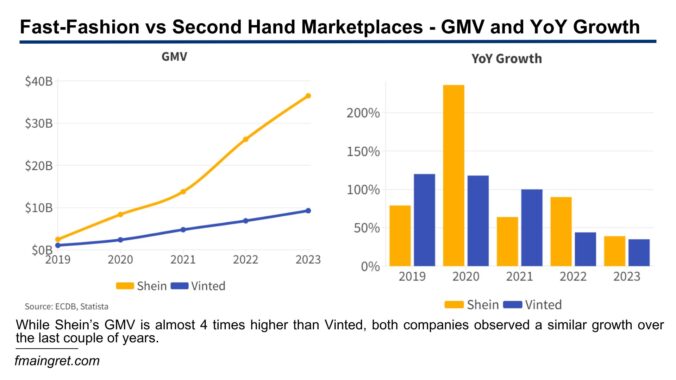
Ecommerce and Social Media are Fueling the Ultra-Fast-Fashion Machine – Can the Same Technologies Also Save Us From it?
In a previous article, I wrote about ultra-fast fashion, specifically on how France is trying to limit its impact on the environment with new regulations. We’ve seen how unsustainable fast fashion can be, with Americans tossing out a whopping 34 billion pounds of used clothes each year—that’s over 100 pounds per person!
What can be done about Shein? Let’s be realistic, Shein is the target of France’s proposed regulations. Bans or taxes sound good on paper, but they don’t completely eliminate the problem and tend to frustrate customers. Making local brands cheaper so they can compete with Shein (through new processes, innovation, or worse, lower taxes or subsidies) may help local economies, but this wouldn’t do much in terms of sustainability. Greenwashing and shaming customers isn’t ideal either, and won’t win any fans.
Are we stuck in a never-ending cycle of buying and trashing clothes, until we drown in used t-shirts? Thousands of new designs are released every day, and Shein sales are supercharged by influencers and social media. However, I believe we shouldn’t throw in the towel just yet. Ecommerce has come a long way in the last 20 years, and there are some impressive innovations that could help us shop smarter and more sustainably. So let’s see what our options are, and how some successful entrepreneurs are already addressing the fast-fashion problem by offering solid alternatives.
Continue readingWhen I moved to Texas from France, I was surprised to see this many dogs when walking around. I thought every other person had a dog. I wasn’t too far off: 66% of U.S. households (86.9 million homes) own a pet, with dogs being the most popular pet (65.1 million U.S. households own a dog).
As a result, the pet care market is huge, $246.66 billion worldwide in 2023 and is projected to grow to $259.37 billion in 2024. Of course, this market is very competitive, and even the largest companies have to constantly innovate to grow.
The e-commerce giant Chewy announced surprising plans to expand, and I’d like to discuss whether other retailers should emulate them.
Continue reading
